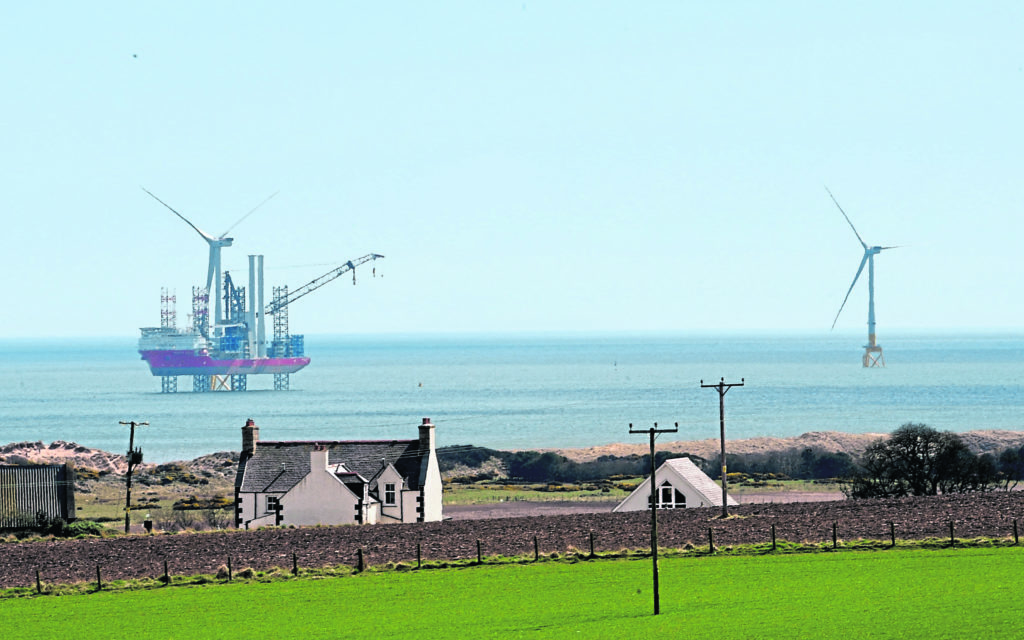
The pace of growth in “green” jobs is faster in Scotland than elsewhere in the UK but any failure to invest in skills may threaten energy transition employment opportunities north of the border, a new report warns.
Professional services giant PwC says the creation of green jobs related to energy transition in Scotland is running at more than one-and-a-half times the UK average.
A total of 2.3% of all opportunities advertised in the Scottish renewable energy sector during 2021 were classed as “green jobs”, compared with the UK average of 1.6%, the Green Jobs Barometer report says.
But it also highlights a UK-wide shortage of skilled labour, with a green energy skills gap of around 200,000 people, that “cannot be addressed from the existing UK energy sector workforce alone”.
Earlier this year, Robert Gordon University (RGU)’s Making the Switch report estimated investments worth £17 billion over eight years could create up to 9,000 new jobs in the north-east energy sector – securing the region’s position as a global energy hub.
But a lack of ambition could cost the area up to 17,000 jobs, RGU’s Energy Transition Institute warned.
According to PwC, Scotland will be more affected than other parts of the UK by the loss of “sunset jobs” in the energy transition. But the firm also says a majority of the new jobs created will primarily be based in Scotland, with many of them in the north-east.
PwC says net job losses will be “minimal”, given many energy workers have the right transferable skills for green jobs.
But it also warns an ageing pool of employees will create a shortfall in meeting demand for new employment.
‘Unique position’
Jason Higgs, environmental, social and governance, and energy transition leader, PwC Scotland, said: “Scotland, along with the rest of the UK, is facing a continuous rise in the demand for electricity which must be met with a huge increase in low carbon energy generation, new ways of working and a more efficient whole system approach.
“While we are in a unique position north of the border, with a strong concentration of green jobs connected to the growth of offshore wind, hydrogen and carbon capture, and the potential to create a global energy hub in the north-east, there is a real need for investment and the creation of a diverse pipeline of talented and skilled individuals to help Scotland capitalise on its position.”
Mr Higgs added: “Reaching the position of global energy hub would result in a significant change in the composition of the future workforce in Scotland, with our most recent Green Jobs Barometer findings indicating a 3.5% rise in green job creation in the electricity and gas sector between 2020 and 2021.
“However, we need government and industry to work together to… secure the significant investment needed to support a just transition, which includes growing the new skills and capabilities of the future, diverse workforce at scale.”
Post-COP26 journey
Martin Cowie, market senior partner for PwC in Aberdeen, added: “This analysis is the latest step in our journey following COP26, and the convening of key players in the energy sector – among others – at our first Green Jobs Barometer event in Aberdeen earlier this year.
“Our ‘deep dive’ into the energy sector and its potential to place Scotland, particularly the north-east, at the forefront of a just transition, builds on those roundtable discussions.
“It also brings to life the need for investment in the sector, as well as the reskilling of the existing workforce to achieve Scotland’s net-zero ambitions.”
Recommended for you
